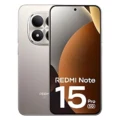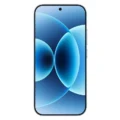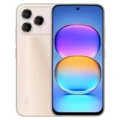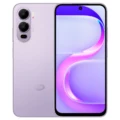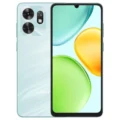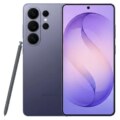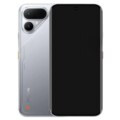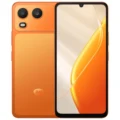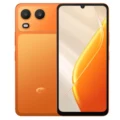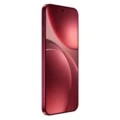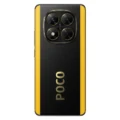Xiaomi Redmi Turbo 4 Pro
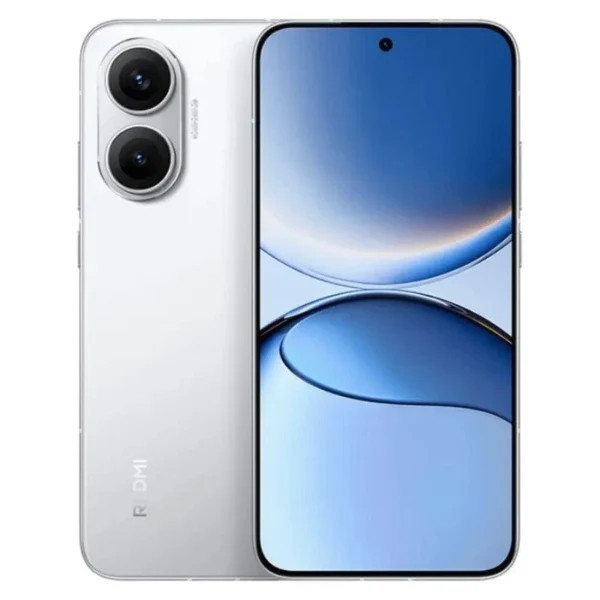

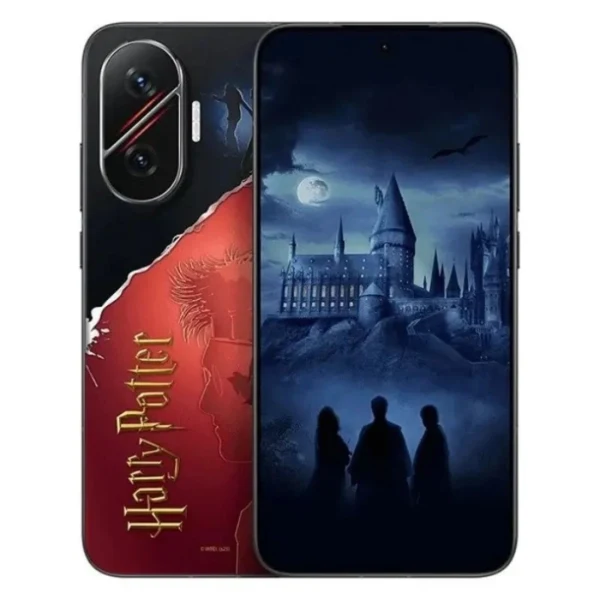

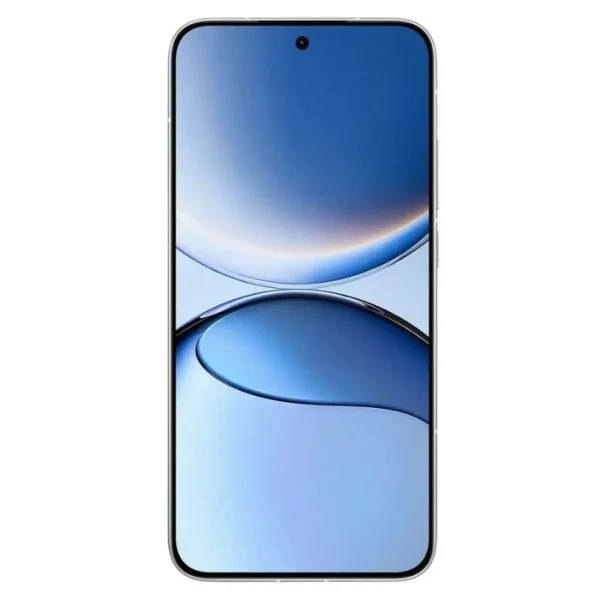

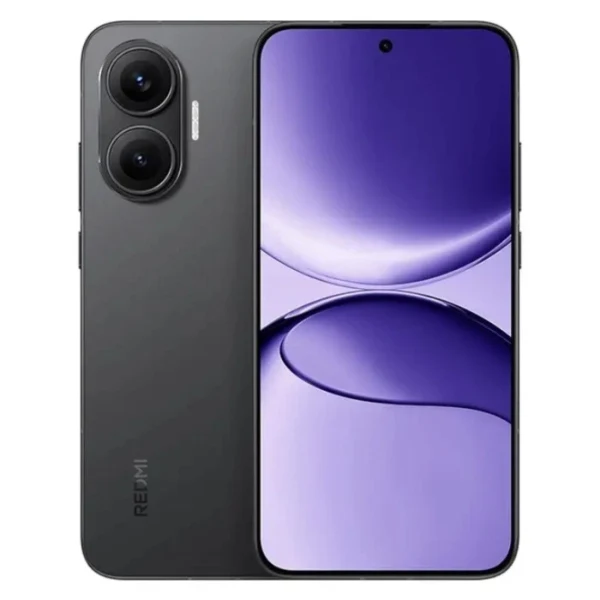

Xiaomi Redmi Turbo 4 Pro price in bd
Xiaomi Redmi Turbo 4 Pro is now available in Three variants (12GB+256GB, 12GB+512GB, 16GB+512GB). Now, Redmi Turbo 4 Pro’s Price Start From is 39,500 BDT in Bangladesh.
Full Specifications
Price in BD
| Unofficial | 12GB+256GB - 39,500 Tk |
| Unofficial | 12GB+512GB - 56,000 Tk |
| Unofficial | 16GB+512GB - 59,500 Tk |
General Info
| Announced | 24 April, 2025 |
| Status | Available |
| Released | 24 April, 2025 |
| Brand | Xiaomi |
| Model | Redmi Turbo 4 Pro |
| Made By | China |
Network
| Technology | GSM / CDMA / HSPA / CDMA2000 / LTE / 5G |
| 2G bands |
GSM 850 / 900 / 1800 / 1900 CDMA 800 |
| 3G bands |
HSDPA 800 / 850 / 900 / 1700(AWS) / 2100 CDMA2000 1x |
| 4G bands | 1, 3, 4, 5, 8, 19, 28, 34, 38, 39, 40, 41, 42, 48, 66 |
| 5G bands | 1, 3, 5, 8, 28, 38, 40, 41, 48, 66, 77, 78 SA/NSA/Sub6 |
| Speed | HSPA, LTE, 5G |
Body
| Dimensions | 163.1 x 77.9 x 8 mm (6.42 x 3.07 x 0.31 in) |
| Weight | 219 g (7.72 oz) |
| SIM SIM (Subscriber Identity Module) is a small card that contains mobile network subscriber's account information. This allows the phone using the card to attach to a mobile network. The SIM card is most commonly associated with GSM and UMTS mobile networks. Moving a SIM card from one phone to another allows a subscriber to switch mobile phones without having to contact their mobile network carrier. SIM cards can also be used by a phone to store limited amounts of data, such as phone numbers and text messages. | Nano-SIM + Nano-SIM |
| Build | Glass front, aluminum frame, glass back |
| Colors | Black, White, Green, Harry Potter edition |
| IP Rating | IP68 dust tight and water resistant (immersible up to 2m for 30 min) |
| Models | 25053RT47C |
Display
| Display Type Display Technology => A number of display technologies and types used in mobile phones => TFT (Thin Film Transistor), IPS (In-Place Switching), OLED (Organic Light Emitting Diode), AMOLED (Active-Matrix Organic Light-Emitting Diode), Super AMOLED (an even advanced version of AMOLED), Resistive Touchscreen (Resistive touchscreens contain two layer of conductive material with a very small gap between them which acts as a resistance), Capacitive Touchsceen (Capacitive touchscreen technology consists of a layer of glass coated with a transparent conductor) | AMOLED |
| Size | 6.83 inches, 114.5 cm2 |
| Screen to Body | ~90.2% |
| Features | 68B colors, 120Hz, Dolby Vision, HDR10+, HDR Vivid |
| Brightness | 800 nits (typ), 1800 nits (HBM), 3200 nits (peak) |
| Refresh Rate | 120Hz |
| Resolution | 1280 x 2772 pixels |
| Aspect Ratio | 19.5:9 |
| Pixel Density Pixel Density (PPI) is refers to the concentration of pixels on a particular display, measured in pixels per inch (ppi). Pixel density is calculated by dividing the diagonal pixel resolution of a display by its diagonal size, higher pixel density better display quality. | ~447 ppi |
| Touch Screen | Capacitive Touchscreen, Multi-touch |
Performance
| Chipset Chipset is a group of integrated circuits designed to perform one or a more dedicated functions, often with real time computing constraints, Popular smartphones are equipped with more advanced embedded chipsets that can do many different tasks depending on their programming. | Qualcomm SM8735 Snapdragon 8s Gen 4 (4 nm) |
| CPU CPU (Central Processing Unit) mostly known as processors, CPU processes instructions in order to carry out certain functions that make your device operate properly. Processors are often described as the brain of computers, smartphones and tablets, Smartphones and tablets rely on processors to carry out their every task, Processors are an incredibly important factor in selecting any type of computing device, including your smartphone. | Octa-core (1x3.21 GHz Cortex-X4 & 3x3.0 GHz Cortex-A720 & 2x2.8 GHz Cortex-A720 & 2x2.0 GHz Cortex-A720) |
| GPU GPU (Graphics Processing Unit) is a single-chip processor designed to rapidly manipulate and alter memory to accelerate the creation of images in a frame buffer intended for output to a display, This includes things such as lighting effects, object transformations, and 3D motion. | Adreno 825 |
| OS | Android 15 |
| UI | HyperOS 2 |
Memory
| RAM RAM (Random Access Memory) is a type of computer memory that can be accessed randomly, any byte of memory can be accessed without touching the preceding bytes that allows information to be stored and accessed quickly from random locations. RAM is the most common type of memory found in computer systems, smartphones, tablets and other electronic devices. | 12 GB, 16 GB |
| ROM | 256 GB, 512 GB |
| Card Slot Memory Card Slot is a special slot for inserting a memory card. Memory cards allow you to expand the phone's built-in memory, A memory card (sometimes called a flash memory card or a storage card) is a small storage medium used to store data such as text, pictures, audio, and video, for use on small, portable or remote computing devices such as mobile phones, mp3 players, digital cameras. | No |
| UFS | 4.1 |
Main Camera
| Dual |
50 MP, f/1.5, 26mm (wide), 1/1.95", 0.8µm, PDAF, OIS 8 MP, f/2.2, 15mm (ultrawide), 1/4.0", 1.12µm |
| Features | LED flash, HDR, panorama |
| Flash Flash Light => There is commonly two types of flash lights are used in camera mobile phones, LED Flash (LED flash offers lower power consumption with drive circuitry that takes up very little room, LEDs can be strobed faster than any other light source), Xenon Flash (xenon flash produces an extremely intense full-spectrum white light for a very short duration) | LED flash |
| Video Recording | 4K@30/60fps, 1080p@30/60/120/240/960fps, gyro-EIS |
| Autofocus | |
| Settings | Exposure compensation, ISO control |
| Zoom | Digital Zoom |
| Resolution | 8150 x 6150 Pixels |
Selfie Camera
| Single | 20 MP, f/2.2, (wide), 1/4" |
| Video Recording | 1080p@30/60fps |
Sound
| Loudspeaker | |
| 3.5mm jack | |
| Others | 24-bit/192kHz Hi-Res & Hi-Res Wireless audio |
Connectivity
| WLAN Wi-Fi is a popular wireless networking technology using radio waves to provide high-speed network connections that allows devices to communicate without cords or cables, Wi-Fi is increasingly becoming the preferred mode of internet connectivity all over the world. | Wi-Fi 802.11 a/b/g/n/ac/6/7, dual-band, Wi-Fi Direct |
| Bluetooth Bluetooth is a wireless communications technology for exchanging data between mobile phones, headsets, computers and other network devices over short distances without wires, Bluetooth technology was primarily designed to support simple wireless networking of personal consumer devices. | 5.4, A2DP, LE, aptX, LHDC 5 |
| Positioning | GPS (L1+L5), BDS (B1I+B1c+B2a), GALILEO (E1+E5a), QZSS (L1+L5), NavIC (L5), GLONASS |
| NFC NFC (Near field communication) is a set of standards for smartphones and similar devices to establish peer-to-peer radio communications with each other by touching them together or bringing them into proximity, usually no more than a few inches. | |
| Infrared Infrared connectivity is an old wireless technology used to connect two electronic devices. It uses a beam of infrared light to transmit information and so requires direct line of sight and operates only at close range. | |
| Radio | |
| USB | Type-C 2.0, OTG |
Sensors
| Sensors Sensors are electronic components that detects and responds to some type of input from the physical environment. The specific input could be light, heat, motion, moisture, pressure and location, The output is generally a signal that is converted to use in computing systems, a location sensor, such as a GPS receiver is able to detect current location of your electronic device. | accelerometer, gyro, proximity, compass |
| Fingerprint | Under display, optical |
| Face Unlock | Yes |
Battery
| Battery Type Battery Type => Cell phones run on various kinds of batteries depending on the manufacturer, phone size or shape and features. There are basically four types of cell phone batteries => Lithium Polymer, Lithium Ion, Nickel Metal Hydride and Nickel Cadmium. | Si/C Li-Ion |
| Capacity Battery Capacity is a measure (typically in Amp-hr) of the charge stored by the battery, and is determined by the mass of active material contained in the battery. The battery capacity represents the maximum amount of energy that can be extracted from the battery under certain conditions. | 7550 mAh |
| Charging |
90W wired, PD3.0, QC3+ 22.5W reverse wired |
Tests
PROS
- AMOLED, 68B colors, 120Hz, Dolby Vision, HDR10+, HDR Vivid
- Qualcomm SM8735 Snapdragon 8s Gen 4 (4 nm)
- Video 4K@30/60fps
- NFC
- Infrared port
- Fast Charging 90W
CONS
- Card slot Not Support
- No 3.5mm jack
- No FM Radio
Xiaomi Redmi Turbo 4 Pro Highlights
The Xiaomi Redmi Turbo 4 Pro has a big and bright 6.83-inch AMOLED display. This screen is perfect for watching movies, scrolling social media, or playing games. It shows over 68 billion colors and supports HDR10+ Dolby Vision, and a 120Hz refresh rate, making everything look super smooth and colorful. It also gets very bright—up to 3200 nits so you can see clearly even under sunlight. The phone is built with glass on the front and back, with a sturdy aluminum frame. It comes in Black, White, Green and a cool Harry Potter edition.
Under the hood, the phone runs on the powerful Snapdragon 8s Gen 4 chipset, built on a 4nm process. This means it’s fast and efficient. It has an octa-core CPU and Adreno 825 GPU, making it great for gaming and multitasking. With Android 15 and Xiaomi’s HyperOS 2 you get a clean, smooth software experience. Apps open quickly and switching between them is seamless. There are RAM options of 12GB and 16GB, paired with fast UFS 4.1 storage, so the phone handles heavy tasks with ease.
The Redmi Turbo 4 Pro has a dual-camera setup on the back: a 50 MP main camera with optical image stabilization (OIS) and an 8 MP ultra-wide lens. This setup lets you take sharp, steady photos, even in low light. You can shoot 4K videos at 30 or 60fps and slow motion up to 960fps at 1080p. The selfie camera is 20 MP, perfect for high-quality selfies and video calls. It also records full HD videos smoothly. Features like HDR, panorama and digital zoom are included to enhance your photography experience.
One of the best parts of this phone is its massive 7550 mAh battery. That means you can go a full day or even two without charging. And when you do need a charge, the 90W fast charging gets you back up quickly. It supports PD3.0 and QC3+, so it works with many fast chargers. Plus, it has a 22.5W reverse wired charge feature—you can use it to charge other devices like earbuds or another phone.
The Redmi Turbo 4 Pro supports 5G, so you’ll get super-fast internet where it’s available. It also supports Wi-Fi 6/7, Bluetooth 5.4 and GPS systems like NavIC and Galileo for accurate location tracking. There’s an under-display fingerprint scanner, face unlock and all essential sensors like a compass, gyro and accelerometer. The phone comes with dual Nano-SIM slots but no microSD card slot, so pick a storage option that suits your needs.
The phone delivers amazing sound with Hi-Res Audio and Hi-Res Wireless Audio support. Even though there’s no 3.5mm headphone jack, the quality of Bluetooth audio is top-tier. You get USB Type-C for charging and data, NFC for payments and even an infrared sensor to control appliances. It also has an IP68 rating, which means it’s dust-tight and can survive underwater up to 30 minutes—so accidental splashes won’t be a problem.
1. What is the price of Redmi Turbo 4 Pro in Bangladesh?
The unofficial price in Bangladesh starts at 39,500 Tk for 12GB+256GB, 56,000 Tk for 12GB+512GB and 59,500 Tk for 16GB+512GB.
2. Does the Redmi Turbo 4 Pro support 5G?
Yes, it supports multiple 5G bands for fast and reliable connectivity.
3. Is the Redmi Turbo 4 Pro waterproof?
Yes, it has an IP68 rating, making it dust-tight and water-resistant up to 2 meters for 30 minutes.
4. Can I expand the storage with a microSD card?
No, the phone doesn’t have a card slot, so choose your storage option carefully—256GB, 512GB or 1TB.
5. How fast is the charging?
It supports 90W fast charging, which can charge the battery very quickly, plus 22.5W reverse wired charging.
6. Does the Redmi Turbo 4 Pro have a good camera?
Yes, it has a 50 MP main camera with OIS, 8 MP ultrawide, and a 20 MP front camera. It also supports 4K video and slow-motion recording.
Why should you buy this Xiaomi Redmi Turbo 4 Pro phone?
If you’re looking for a powerful, modern phone with excellent performance, a stunning display, and long battery life, the Redmi Turbo 4 Pro is a great choice. It’s perfect for gamers, content creators and everyday users. Plus, with IP68 water resistance and strong build quality, it’s made to last. The camera and software also make it an all-in-one device for work and fun.
| Model | : | Redmi Turbo 4 Pro |
| Released | : | 24 April, 2025 |
| RAM | : | 12 GB |
| ROM | : | 256 GB |
| Price | : | 39,500 Tk |
Our Verdict on the Xiaomi Redmi Turbo 4 Pro
The Xiaomi Redmi Turbo 4 Pro delivers outstanding value for money. With high-end features like the Snapdragon 8s Gen 4 chip, a beautiful AMOLED display, and 90W fast charging, it’s a top-tier phone at a mid-range price. The only downside is the lack of a headphone jack and expandable storage, but overall, it’s one of the best phones in its class for 2025.
Follow X – See Xiaomi Poco X7 Pro (12GB+512GB)
Reviews
Disclaimer Note
We always try our best to keep our website content and information updated and correct, the material and information contained on our website is for general information purposes only, You should not rely upon the material and information as a basis for making any business, legal or any other decisions.

